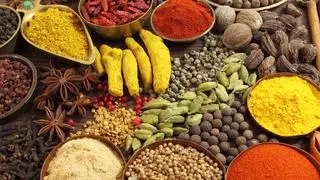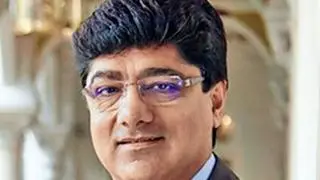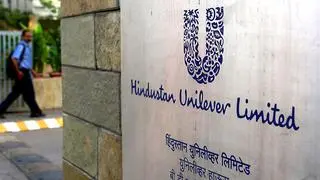PepsiCo India President & CEO Ahmed El Sheikh, who came on board officially in January, is hoping to accelerate the growth trajectory of the company in line with the growth of the Indian economy. Under his leadership, the company has taken strategic decisions to push distribution of the juices portfolio with the aim of doubling Tropicana’s business by 2020 and launching new products with ethnic flavours to take on regional competitors in the snacks and beverages segments. In an interview with BusinessLine , Sheikh said the company is targeting to double its India business in the next seven-eight years on the back of double-digit organic revenue growth. Excerpts:
What are some of the key priorities that you have and targets that you have set for your team at PepsiCo India?
Going by the forecast, if the Indian economy is going to double in the next seven-eight years it is going to create opportunity for everyone.
For us having been in India for 28 years so far and operating in so many categories, we have the right to say, we would like to double our business as the Indian economy is expected to double in size.
But, we have to ensure that we pursue sustainable, profitable and responsible growth which is aligned with our global strategy of performance with purpose.
At the same time, one needs to prioritise and bring focus in picking up the categories where we will have a play. India is an engine of growth and we are aiming at a double-digit organic growth. We are firing maybe in four out of the six cylinders right now. We need to fire on all six cylinders. India is so big, we have to segment the market with different strategies. For instance, there is this high income consumer segment, who shops in modern trade and e-commerce, and then, we have the base of the pyramid and the core Indian consumers.
If we don’t win in India with the base of the consumer pyramid with availability and affordability we don’t have the right to be in India.
The past 2-3 years have been challenging for the industry due to various macro-economic challenges. What are your expectations for growth in 2018?
In Q1 this year, we saw double digit growth in revenues, while in Q4 last year, we saw high single digit growth in revenues. Once you get the growth momentum, you need to hold on to it. That is our plan. Having said so, you can have one good quarter or one bad quarter, it will not make the year. The most important thing is the trajectory of growth that we are seeing is positive.
Aerated beverages growth rate has not been what was seen in the past. Do you believe this will bring a shift in your portfolio where juices and hydration brands could become the core brands for the company in the long term?
The juice segment is growing at a much faster rate than carbonated beverages, but this growth is happening at a smaller base. The growth in the juice segment will accelerate further and that is why we are investing heavily in this space.
At the same time, in India, aerated beverages business is highly seasonal. There is a big opportunity to build the aerated beverages business beyond three months of summer season.
So there is opportunity for growth in our core business, at the same time there are bigger opportunities to grow in the hydration and juices segment.
You have recently divested distribution for Tropicana, Gatorade and Quaker value-added dairy portfolio to Varun Beverages in the North and East region. Are there any future plans for any further changes in your bottling structure?
There are no such plans for any such changes. As far as juices portfolio is concerned, we decided to leverage on our bottling partners’ distribution network to grow the penetration of our brand Tropicana in the North and East region.
This is a strategic move to double the Tropicana juice business by growing its availability and access across every single cooler and store in these regions. This is one of the decisions on which I was happy to work with the team.
FSSAI is in the process of finalising the new labelling norms and has proposed front-of-the-pack labels and also red colour coded labels for HFSS food. Are you in talks with FSSAI over the same and what are your views?
Even before this, we have been working on transforming our portfolio and are committed to our goals for reduction of sugar, saturated fat and salt in our products. We are in discussions, not as PepsiCo but as part of the industry with the FSSAI.
The industry has different points of view and is aligning these views. The ultimate goal is that consumers should be aware about what they are eating and that we need to be transparent about all the ingredients on the labels. We think this is a positive move from FSSAI.
Are you looking at bringing in any new brands from your global portfolio ?
I think we have enough on our plate. We just need to focus on accelerating the growth of our brands in the existing categories.
In hydration, for instance, we have Gatorade and we believe it’s an untapped category. We need to accelerate our growth in hydration.
In the snacks category, for instance, with Doritos, we have become the market leader in the nachos category in a short time. We are now launching smaller packs to grow its penetration.








Comments
Comments have to be in English, and in full sentences. They cannot be abusive or personal. Please abide by our community guidelines for posting your comments.
We have migrated to a new commenting platform. If you are already a registered user of TheHindu Businessline and logged in, you may continue to engage with our articles. If you do not have an account please register and login to post comments. Users can access their older comments by logging into their accounts on Vuukle.